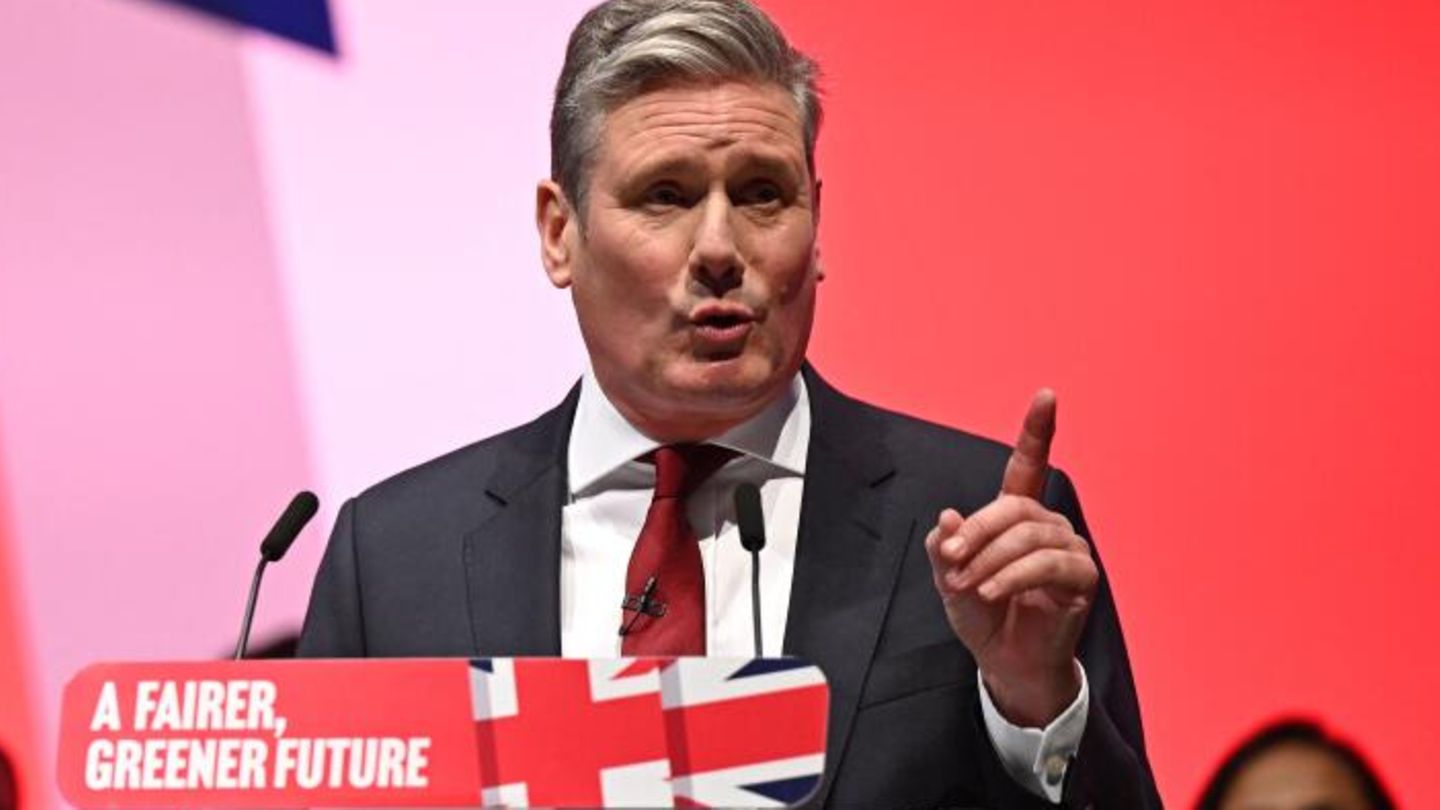Britain’s economy is on the rocks and the Truss government is under massive criticism. At the same time, the opposition Labor Party’s popularity ratings are skyrocketing. At the party conference, chief Keir Starmer sees himself on the verge of power.
Labor Party banners flap wildly in the wind at Liverpool Harbour. At the party conference of the British Social Democrats at the end of September it is already autumn in the working-class stronghold on the Irish Sea. Politically, however, things are by no means stormy for Labor and their party leader, Keir Starmer. The party, which won a historic election victory under Tony Blair 25 years ago and ushered in a new era of social democratic politics in Europe, has found itself again after years of internal trench warfare and is presenting itself as harmonious.
During his party speech on Tuesday, Starmer is already celebrating like an election winner. He is heralded as “the leader of the party and the next prime minister” and .
Criticism of Liz Truss and her radical tax cuts
Things are very different for the Conservative British government. The pound has fallen to record lows against the US dollar following the announcement of massive tax cuts aimed primarily at benefiting the wealthiest in society and driving up government debt. The Bank of England is not ruling out further rate hikes to get inflation under control. Banks are withdrawing loan offers with fixed interest rates.
Rumors are already circulating in London’s government district of Westminster that the new British Prime Minister Liz Truss, who replaced the scandalous Boris Johnson in office just a few weeks ago, could soon be overthrown again by her own party. The first letters are said to have already been received by the responsible party committee, with which faction members have withdrawn their confidence.
So far, only a few believe that it will come to this. But Labor has long tasted blood. A new parliament must be elected by January 2025 at the latest. But in British politics, legislative periods are rarely completed, and the Reds do not have to fear a new election at the moment. “The government has lost control of the British economy,” Starmer told his audience at the party conference.
Labor is united – and leads in polls
The 60-year-old Starmer now seems much more relaxed than before. The lawyer and former chief prosecutor jokes in Liverpool with party newcomer and ex-football player Gary Neville about his Sunday kicks and his love for Arsenal, with which he does not find too many like-minded people in Liverpool. When Neville calls into the hall: “Get behind Keir Starmer”, the footballer gets thunderous applause and cheers. Stephen Reynolds, a Labor councilor from the town of Telford, near Birmingham, found Starmer’s performance simply brilliant. “He is becoming increasingly self-confident at the top of the party, and I think everyone is behind him now,” said the 64-year-old in an interview with the German Press Agency.
In general, there is hardly any trace of the former quarrels among the Social Democrats. The trench warfare between the supporters (Corbynistas) of the old left ex-party leader Jeremy Corbyn and the moderate wing of the party has been overcome – in favor of Starmer and the centre.
Labor is well ahead of the governing Tories in the polls. Even a majority of their own no longer seems out of reach, according to a survey by the opinion research institute Savanta. Accordingly, 45 percent of those surveyed said they wanted to vote for the Social Democrats in the next election, only 33 percent spoke out for the Tories. According to a survey by the YouGov polling institute commissioned by the conservative newspaper The Times, the lead is even greater. Accordingly, the Tories would only get 28 percent of the vote.
Starmer rules out deal with Scotland
But political scientist Anand Menon from King’s College in London is skeptical whether Labor will be able to survive completely without outside help after an election. “It looks like Labor will become the strongest party, but will then have to work with others,” said the professor in a dpa interview.
Labor has so far categorically ruled out any cooperation with the separatists of the Scottish national party SNP. Because that would probably have the price of granting the Scots a second independence referendum. “We cannot and we will not work with them. No deal under any circumstances!” Starmer shouted in front of his party colleagues. They are words by which he will have to be measured.
Source: Stern
David William is a talented author who has made a name for himself in the world of writing. He is a professional author who writes on a wide range of topics, from general interest to opinion news. David is currently working as a writer at 24 hours worlds where he brings his unique perspective and in-depth research to his articles, making them both informative and engaging.




